Cognitive Development Normal World Around Us Worksheets for 4-Year-Olds
6 filtered results
-
From - To
Discover our engaging "Cognitive Development Normal World Around Us Worksheets" designed specifically for 4-year-olds! These worksheets focus on nurturing essential cognitive skills by exploring familiar concepts in their everyday environment. Children will learn to identify shapes, colors, and different objects, enhancing their critical thinking and reasoning abilities. With a variety of interactive activities, including matching games and creative drawing tasks, these resources make learning fun and impactful. Perfect for at-home learning or classroom use, our worksheets will encourage young learners to explore and understand the fascinating world around them, laying the groundwork for future academic success. Start the adventure today!
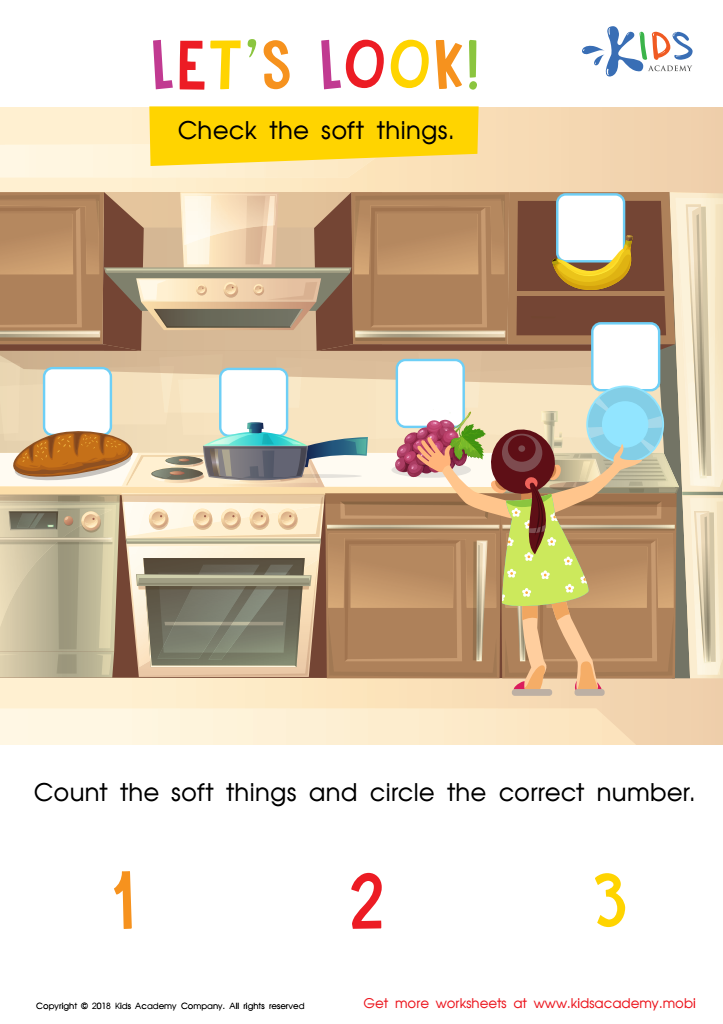

Let's Look! Assessment Worksheet


Carnivores Worksheet
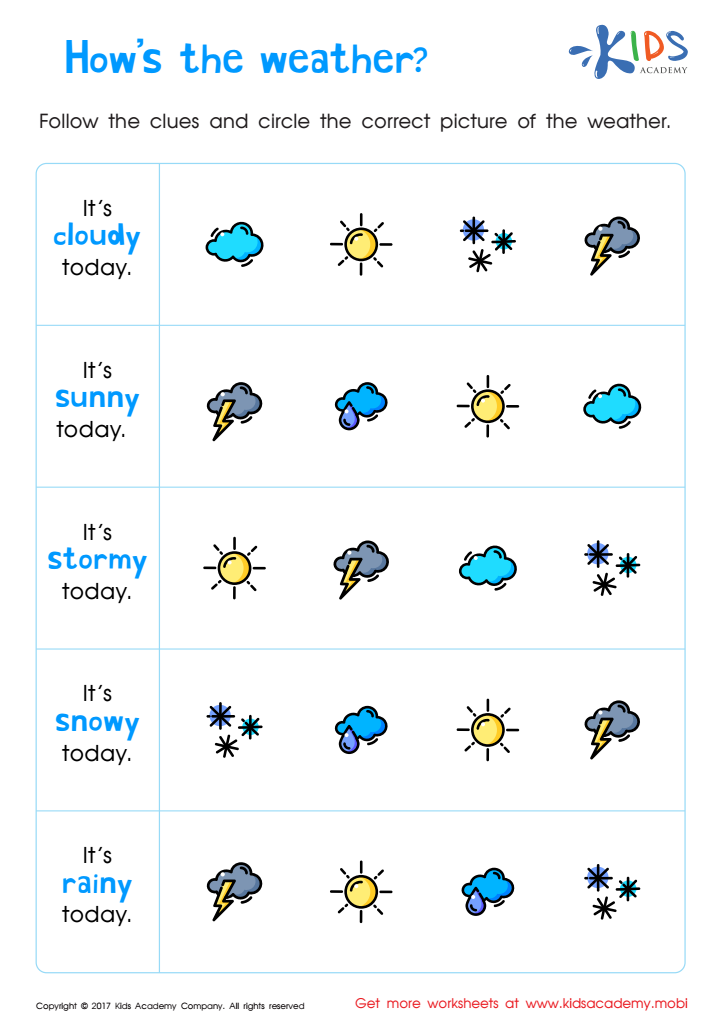

Hows the Weather Worksheet
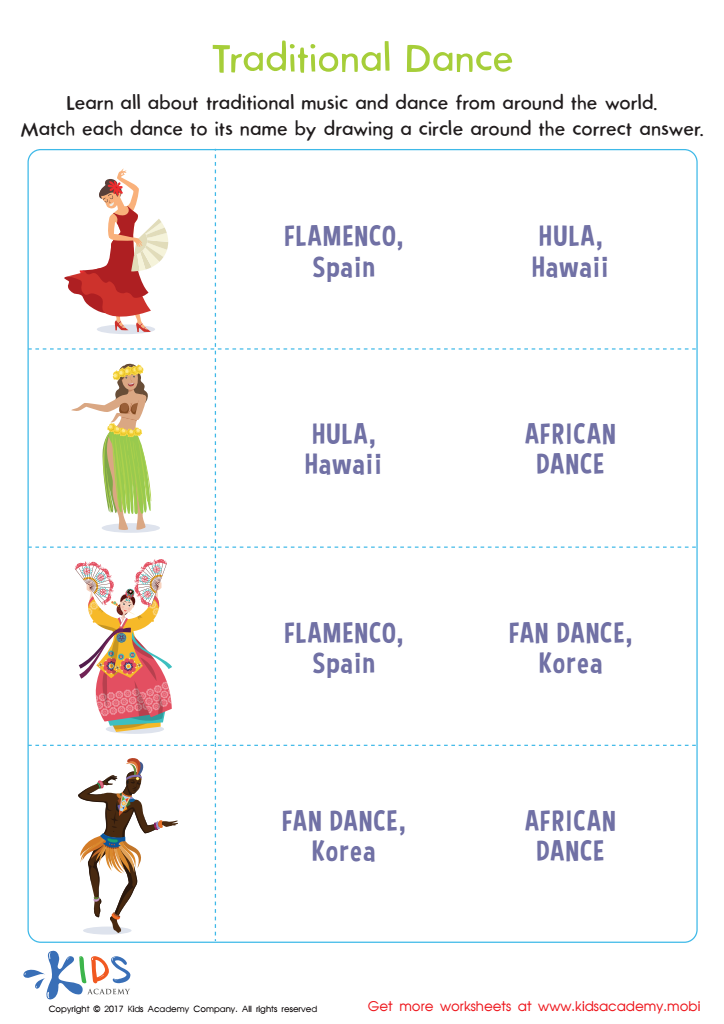

Traditional Dance Printable
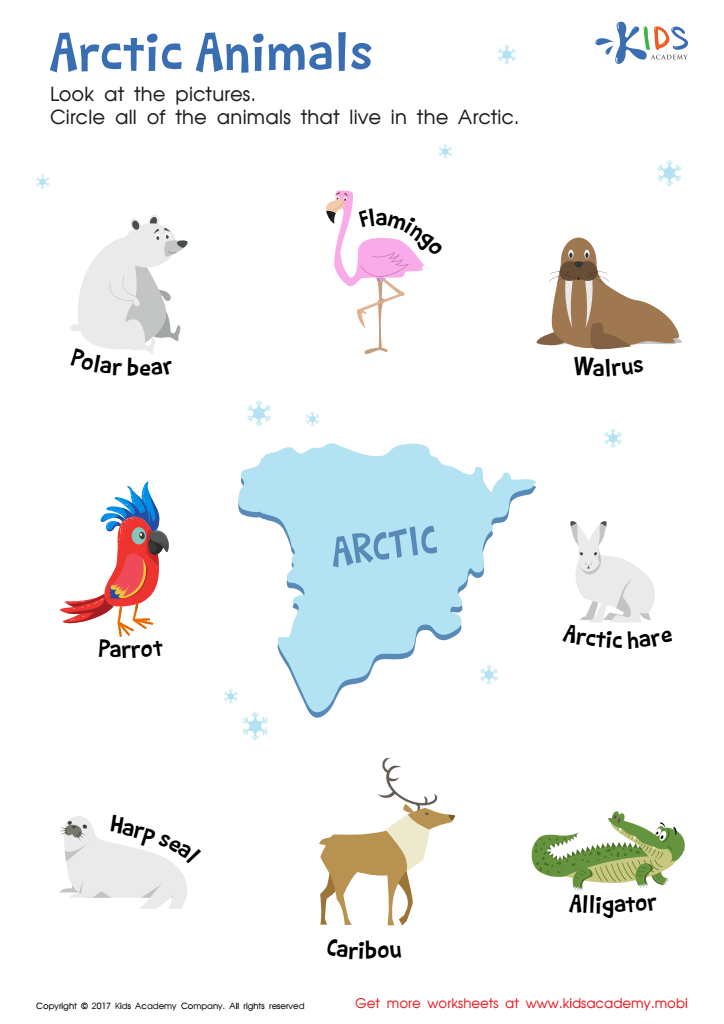

Arctic Animals Worksheet
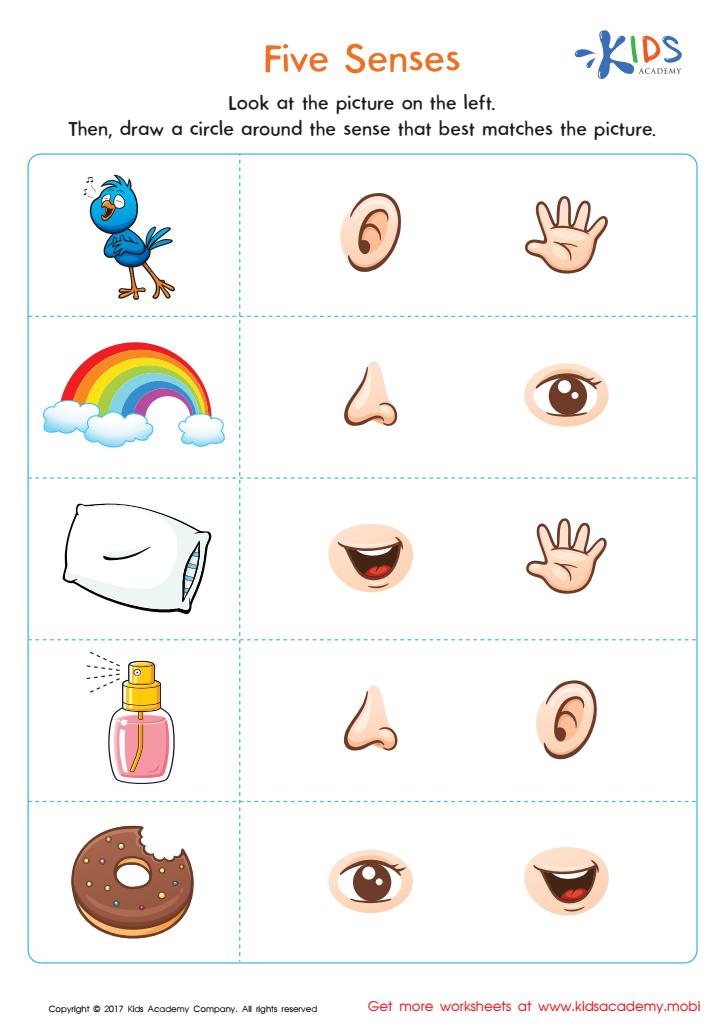

Five Senses Printable
Cognitive development in four-year-olds is crucial as it lays the foundation for future learning and overall growth. At this age, children are naturally curious and engage in active exploration of the world around them. Parents and teachers should care about this developmental stage because it directly influences a child's ability to think, reason, and solve problems.
Cognitive development impacts various aspects of learning, including language acquisition, social interaction, and emotional understanding. As children learn to categorize objects, recognize patterns, and understand cause-and-effect relationships, they build critical thinking skills essential for academic success. Encouragement from adults can enhance these skills through guided play, stimulating conversations, and experiential learning.
Additionally, a focus on cognitive development helps identify potential learning challenges early on. Early intervention allows for timely support, ensuring every child has the tools needed to thrive in educational settings. Fostering a rich learning environment, both at home and in school, empowers children to ask questions, explore choices, and develop independence. Ultimately, nurturing cognitive growth sets the stage for lifelong learning and successful adaptation to the broader world, highlighting the importance of parental and teacher involvement in this pivotal developmental period.
 Assign to My Students
Assign to My Students







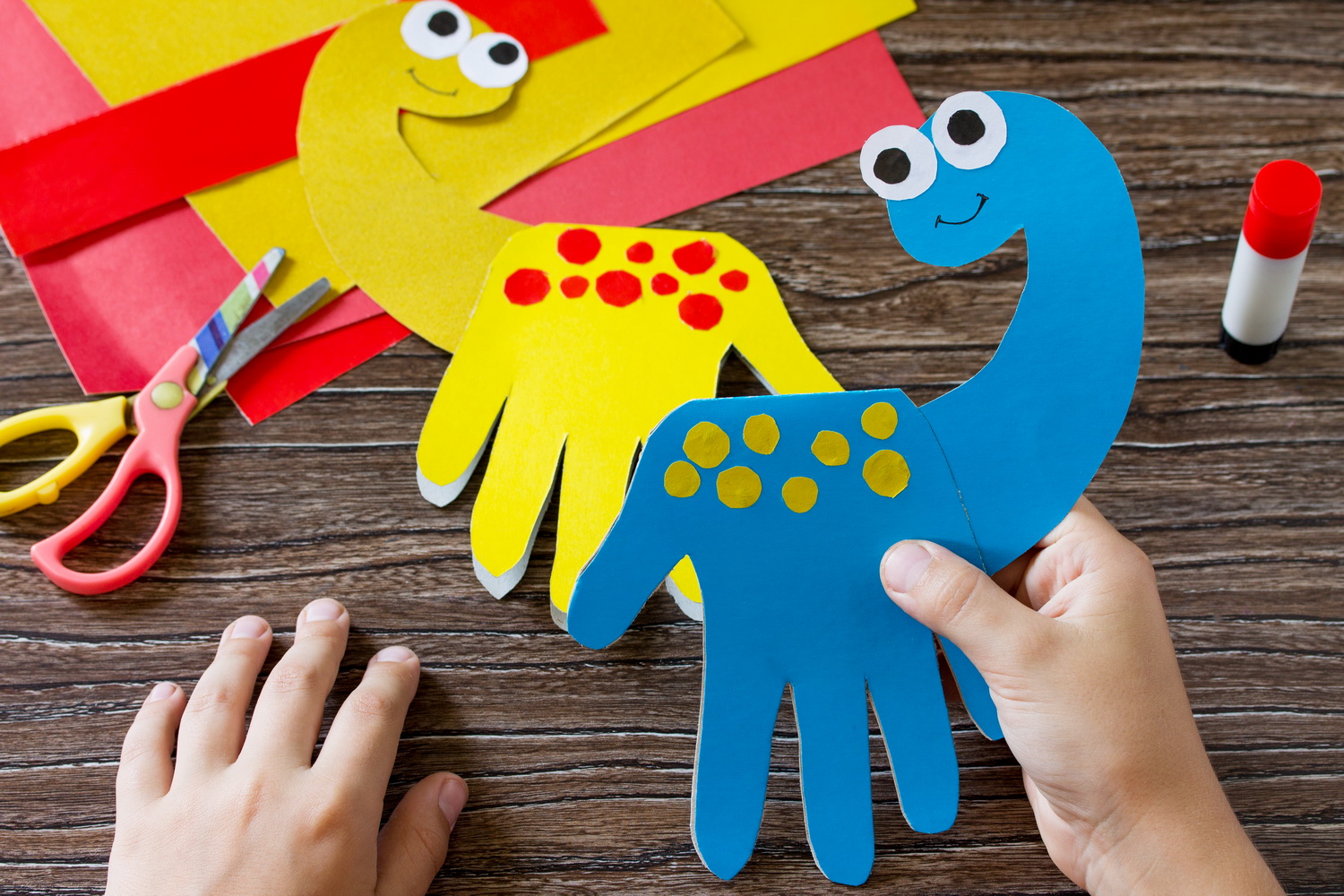
.jpg)











